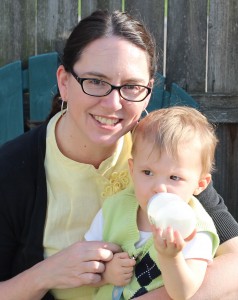 Jo Ann Deasy is an ordained pastor in the Evangelical Covenant Church currently serving as a director at the Association of Theological Schools in Pittsburgh, PA. She came to faith in a Covenant Church plant in Northern California and is grateful for those who nurtured a call to ministry in her as a new believer. She has served as a youth intern, a Minister of Christian Education, a Dean of Students, and most recently as a solo pastor.
Jo Ann Deasy is an ordained pastor in the Evangelical Covenant Church currently serving as a director at the Association of Theological Schools in Pittsburgh, PA. She came to faith in a Covenant Church plant in Northern California and is grateful for those who nurtured a call to ministry in her as a new believer. She has served as a youth intern, a Minister of Christian Education, a Dean of Students, and most recently as a solo pastor.Have you ever seen healthy anger in a woman? Anger. Righteous indignation. The expression of hurt. A rational response to something that is wrong. I hope your answer is yes, but I know that for many of you, you may have had to think about it. Healthy, rational anger is not a response that we expect from women. And when it does happen, we rarely recognize it. We interpret it as something else. We marginalize it by calling the woman names or describing her as “hysterical” or “overly emotional.”
As part of my doctoral research, I interviewed several young women about identity and ministry. The interviews happened to be taking place as Hilary Clinton was running for president. One of the women in the group confessed that she did not think Hilary would make a good president, because she would probably be too emotional when crisis situations occurred. This was a strong young woman who considered herself a feminist, but she couldn’t imagine a woman president getting angry in a way that would serve her well as a leader.
I always find it interesting that we assume that men act rationally in crisis situations, with logic and without emotion. The truth is, however, that men express a lot of emotions in leadership, but when they express anger it is seen as strength, as righteous indignation, as appropriate aggression or self-defense.
Many decades ago a woman named Jean Baker Miller wrote a short article entitled “The Construction of Anger in Men and Women.” (The article can be found in the book Women’s Growth in Connection: Writings from the Stone Center.) It described the fear often associated with anger expressed by women. Miller suggests that “the profound cultural fear of women’s anger is probably connected to the fact that women have been the main ‘caretakers’… We have a culture that is not organized so that members of the dominant group really take care of each other.”
More importantly, her work talked about how anger is constructed in our society. How those in dominant positions are trained to express anger as competition and aggression. How those without power are trained not to express anger. How the anger of those without power is often exaggerated, suppressed, or denied.
I have thought about this concept and this article often over the years. When so many of the pioneering women pastors that I knew were being written off as “angry women.” When women clergy expressed anger about being disrespected by parishioners or harassed by supervisors and were disregarded or written off as being too sensitive. When a community expressed anger over the fatal shooting of a young black man by a white police officer and the media portrayed them as out-of-control and riotous.
The idea that anger is interpreted differently for different people in different situations has caused me to think differently when I feel anger or am confronted by anger either personally or in the media. It has caused me to try to set aside my initial responses of fear or defensive anger and to really listen to others. To not take it personally. To wonder why people are angry before getting upset that their anger seems excessive or overwhelming. To ask if there is any chance that my fear of the truth is keeping me from listening.
Our God would not want us to ignore anger being expressed as a result of injustice. May our desire to act justly and to love mercy outweigh our fear of conflict and our desire for an easy way to peace.


Thank you, Jo Ann. This is such a wise and thoughtful expression of something many of us live with but don’t talk about. I will take to heart your call to listen to anger, to receive it and respect it where and when it manifests.
Report This Comment
09.23.14 at 6:31 pm
JoAnn – I can’t tell you the number of times I’ve personally had to address this issue. I have been an interpreter explaining the passion behind expressed anger. It is offensive to those who value comfort and are unaware of their privilege. It is difficult to translate how deep the misunderstanding is that exists between women who have been marginalized and those who can create opportunity. When these women leaders decide to express outrage or display courage in the face of injustice they are called ‘rebels’. Pioneering women have always been misunderstood because of the strong leadership needed to dismantle walls of power and privilege. God gifted
pioneering women to be persistent in their leadership and the world too often labels that as being an ‘angry woman.’ Your post is beautifully written and right on point. Thanks!
Report This Comment
09.23.14 at 6:46 pm
It drives me crazy having to constantly repress myself so I would not be label as angry, which follows a dismissal. I am glad I am able to experience that feeling, it is fuel for action!
Report This Comment
09.30.14 at 2:05 pm